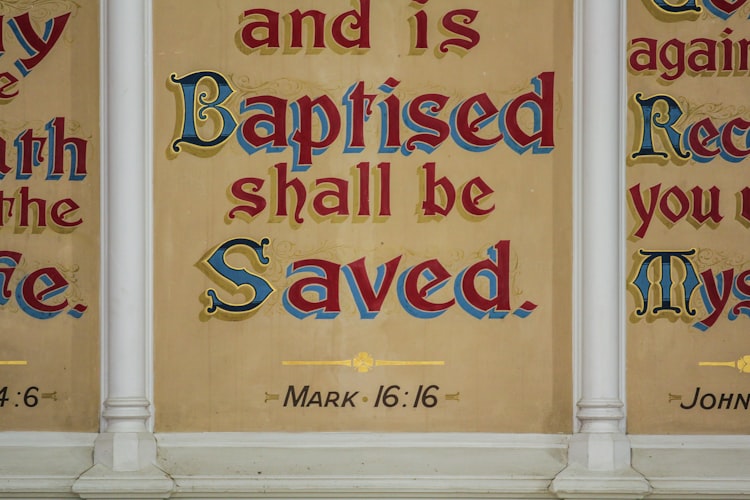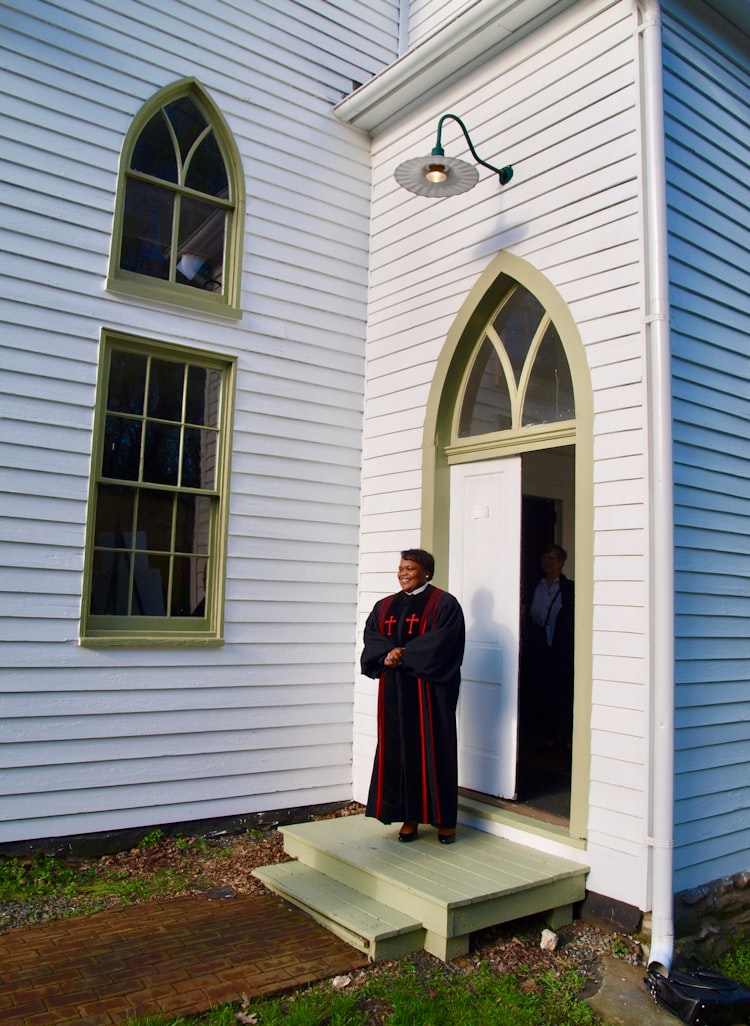A Dialogue About the Trustworthiness of Scripture
Someone on my Facebook was sealioning me about the trustworthiness of Scripture. While I usually don't find such back-and-forth all that helpful, it ended up being a useful exercise in explaining some of the ways I understand how the Bible works.
Do you claim to believe Christ and His Word?
Heck Yes I do!
And you believe the Bible is the Word of God?
The Bible contains some words from God but is not the Word itself. The Word became flesh and dwelt among us. The Bible should never be confused with Jesus.
I'm a bit confused. Could you explain that?
"The Word" is an idea used in the Gospel of John Chapter 1 to talk about Jesus, the second person of the trinity, who "took on flesh" or "became incarnate." Historically, when Christians refer to the "Word of God," that has typically meant Jesus.
However, some people use the phrase "Word of God" to talk about the Bible. This, I think, is a mistake and creates confusion. Descriptions that should only be used of God ("perfect" or "inerrant") get applied to a collection of books instead.
That collection of books, the Bible, contains words from God. And it speaks about the WORD of God (i.e. Jesus). But it is not itself the Word of God. Only Jesus is.
Therefore, our expectations of this collection of books should be different than our expectations of God. The books of the Bible were written and collected by fallible humans. Those humans had encounters with God, wrote them down, and generations of Jews and Christians have found meaning and liberation in those words. Therefore we today should also find meaning in those words! But our spiritual ancestors also wrestled with those words, found the places where those fallible humans clearly failed, and reinterpreted them in light of that.
Ah. So how do we know what parts of the Bible are true? Or is any of it true, for that matter?
Well, first of all, it’s important to remember that the Bible is not a book of facts or a rule book or a compendium of knowledge. It’s a collection of people’s experiences with God. So the point of the Bible is not to find out facts, as if we were studying for a cosmic multiple choice exam, but rather to discover wisdom. Wisdom is more difficult but far more valuable.
In that spirit, our primary interpretive focus—for discovering wisdom about what God is like and for how we should love our lives—should be the person of Jesus. Jesus is the ultimate revelation of God’s character, exceeding and correcting all previous revelations. Jesus says that whatever we see him doing, that is what the Father is doing as well.
Of course, other interpretive methods can also glean important things. The grammatical-historical method can show us something about history. A literary method can show us something about metaphor.
But all interpretation must bend itself around Jesus. If people in their prior experiences with God make claims that don’t align with the God revealed in Jesus, then we prioritize Jesus.
My children instinctively get this. I once read the Jericho story to my young daughter. When we got to the part where the walls fell down, she said, “I don’t think that’s something Jesus would do.” And you know what, I think she’s right.
If it doesn’t sound like something Jesus would do, it’s not something God would do.
Also, to be clear, I'm very much a maximalist regarding this sort of stuff. That means I think there probably was some sort of historical David, Ruth, Elijah, Isaiah, etc. Something really happened at Mt. Sinai; something really happened between Elijah and Ahab, and so on. AND we're reading about those experiences through hundreds of years of oral story-telling, myth- and legend-making, and so on. So, it takes incredible amounts of historical and archaeological work to determine "what really happened." AND I also think that the point of those stories is not just to tell us "what really happened."
This is where people get the point of 1 Timothy 3:16 entirely wrong. "All Scripture is profitable for..." The point is not "everything literally, historically true." The point is, "Even if these things aren't literally, historically true, we can still glean value and truth from these stories."
Sir, if the Bible was written by fallible men, how do we know Jesus said anything at all?
The same way we know anything—historiography, archeology, research, study, and so on. At this point in our conversation, we're venturing close to "epistemology," the study of what it is to know something.
However, this answer isn't made more simple by believing in inerrancy. We have four Gospels. In many places, they agree on their narrative. In other places, there's tension. And in other places, they just entirely disagree. A biblical inerrantist has to work quite hard at making all of these mismatched puzzle pieces work together—and usually (from a non-inerrantists' perspective), looks quite silly doing so.
Fortunately, the historical evidence for a historical Jesus of Nazareth is incredibly strong. And the historical evidence that (at the least) the first generation of Jesus' followers believed in a historical resurrection is also incredibly strong.
I found the work of N. T. Wright (his Christian Origins series, as well as "History and Eschatology") and Greg Boyd and Paul Eddy's "The Jesus Legend" very helpful on these fronts.
Okay. Is it possible that the words of Jesus (red letters) in the Bible were really not His words at all? Because the red words were written by Matthew, Mark, Luke and John, right?
A few things on this question. First, the four Gospels are technically anonymous, i.e., there's no name attached to them. So if someone claims they were written by someone else, it's no skin off my back.
That said, as early as the 2nd century, the early church had pretty consistent testimony about the nature of the eyewitness testimony in the Gospels. I tend to be a maximalist on issues like these. I think John Mark (most likely the rich young ruler and the naked man in Gethsemane) really wrote Mark. Matthew wrote Matthew; and Luke the physician and companion of Paul wrote Luke. John is a more complicated matter (which John? there were at least 2!).
Secondly, were they really the words of Jesus? Well, we must remember that first-century expectations of quotations are different from twenty-first-century expectations. Modern folks expect journalists to get quotes precisely right. We can record anyone, or at least have easy access to pen and paper, and get the details exactly right, usually. If someone is paraphrasing, we expect them to say, "I'm paraphrasing."
First-century expectations were different. There was no way to record someone's voice. Access to paper was sparse. Most stories were told orally, so quotations were not the word-for-word delivery we expect today.
The most obvious example of this in the New Testament is Paul's encounter with Jesus. The story is told multiple times in Acts, each time with slightly different phrasing and words. And, from a first-century perspective, that's just fine.
Anyway, all that said, I am personally annoyed by the existence of "red letter editions" of the New Testament because it gives modern readers the wrong impression. "These are the very words of Jesus!" Well, perhaps? It's also just as likely that the author was shaping well-known teachings and phrases of Jesus (possibly delivered multiple times over multiple years) into something that fit the audience they were writing to.
My favorite example of this is Matthew's portrayal of Jesus' entry into Jerusalem. He depicts Jesus as riding both a colt and a donkey simultaneously. That's a hilarious mental image and also highly unlikely. What's actually happening is that Matthew is appealing to his Jewish audience by having Jesus fulfill a prophetic word that refers to both animals.
Does this somehow ruin the testimony, authority, or inspiration of Scripture? Not for me. First-century writers writing in first-century ways makes perfect sense.
Now, again, I'm a maximalist on this sort of stuff. I don't believe that the gospel writers made up sayings of Jesus whole cloth. I believe the Gospels give an accurate and trustworthy portrayal of Jesus' life and teachings. And they did this in first-century ways that we don't need to shove twenty-first-century expectations onto.



Member discussion